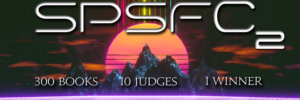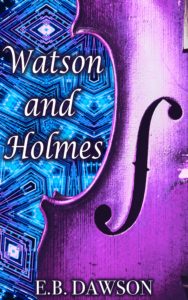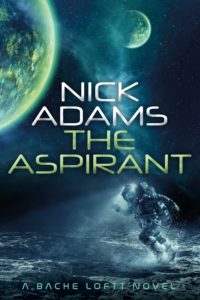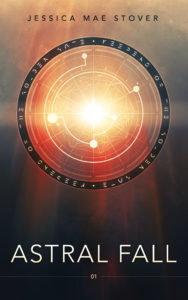
My team has been given 28 books to evaluate in the first round of the second annual Self-Published Science Fiction Competition (SPSFC2), with the ultimate task of whittling them to three by the end of January. Those semifinalists will be passed to other judging teams for another round of evaluation before the finalists are chosen next spring. But as other judges well know, going straight from 28 to three is a daunting challenge. For this reason, most judging teams have implemented some method of sampling and narrowing the initial field. In particular, we have decided to assign each book to two of our five readers, have them read as long as their interest lasts, and return with a recommendation. The books recommended by our initial readers will be named quarterfinalists and passed to the remainder of the team for full reads, and the others will be eliminated.
I must emphasize that an elimination at this stage does not mean that a book is low-quality–we’ve seen SPFBO finalists eliminated in the first stage of SPSFC, and one of my personal favorites was a first-round elimination by another team. Tastes vary widely across the spectrum of sci-fi readers, and sometimes a book’s randomly assigned judging team just isn’t the best fit for the book. We’ve tried to mitigate that by allowing our team members to choose their own “initial reader” assignments from our randomly-assigned stack, but it’s impossible to keep every good book from falling through the cracks.
The beginning of the month brought our first two elimination posts leading up to the announcement of our quarterfinalists, and today is the third and final. While we were not able to provide full reviews for the eliminated books, we’ve done our best to give a brief summary of the strengths and weaknesses as we saw them, and of our reasons for making the cuts. And, as a final note, the order in which a book appears has no correlation with how close it was to becoming a quarterfinalist.

Title: Watson and Holmes
Author: E.B. Dawson
Status: CUT
Consensus: This spin on Sherlock Holmes uses the reader’s cultural familiarity with the original to buttress an entertaining dynamic between the two leads. However, our readers felt the pacing was too quick, dizzyingly shifting from scene to scene without allowing the audience to fully immerse in the characters or setting.

Title: In Every Clime and Place
Author: Patrick LeClerc
Status: CUT
Consensus: Admittedly, our team isn’t brimming with military sci-fi fans, and this is very MilSF. But our readers didn’t enjoy the macho persona and crude humor of the main cast—along with frequent comments about race and gender that were grating, even if not necessarily offensive—and our sole resident MilSF fan didn’t see enough to pick it out from the crowd.

Title: The Aspirant
Author: Nick Adams
Status: CUT
Consensus: Smooth prose and a brisk pace made it easy for our judges to get into the flow of this one, but the plot didn’t offer enough to sustain them, with similar story beats repeated too many times, a teen hero who always seemed to have the right tech for any given situation, and a generic set of antagonists.

Title: Warrior Wench
Author: Marie Andreas
Status: CUT
Consensus: This one is action-packed from the get-go—perhaps too much so. Our readers had trouble connecting to cliffhanger scenarios before they knew the characters well enough to invest emotionally. Between that and some early infodumping, there was enough to prevent it from advancing further.

Title: Aurora Ascending
Author: Dennis Ideue
Status: CUT
Consensus: A remarkably well-realized setting demonstrated the care put into the worldbuilding and the military tactics, but characters that never seemed to stretch beyond narrow archetypes kept our readers from advancing this one to the quarterfinals.

Title: Astral Fall
Author: Jessica Mae Stover
Status: CUT
Consensus: From a prose perspective, this military sci-fi entry is in a short discussion for the best book we saw in the first round. But with an opening that throws the reader into a veritable whirlwind of detail, we had a hard time grasping a central hook to keep us going. We definitely saw enough to take a peek at Stover’s other work, but the plot just didn’t take shape clearly enough to advance to the quarterfinals.
